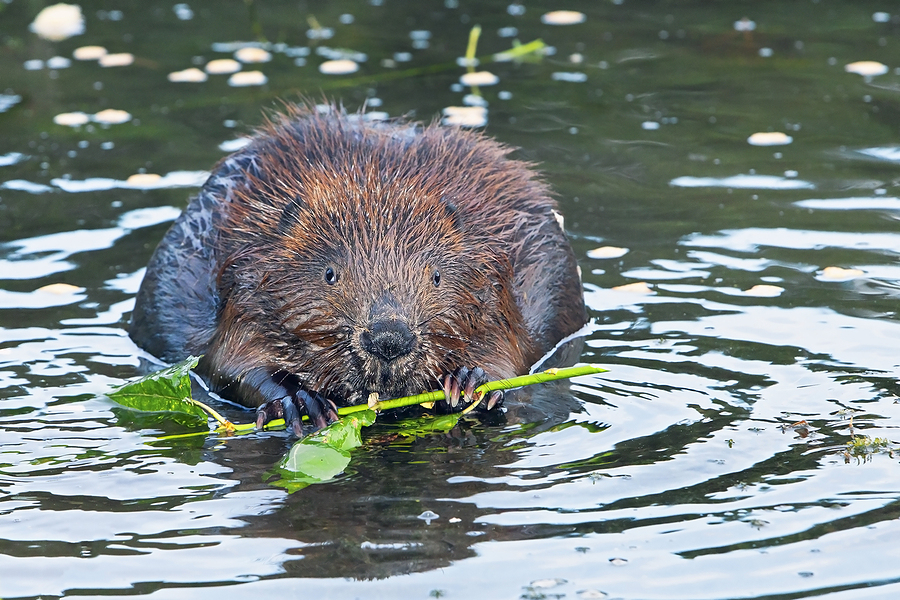Did you know beavers are a keystone species? This means they are important to us, like many other animals in our local wildlife populations. Continue below to learn all about the ecological importance of beavers, plus some safe and humane ways to abate nuisance beaver activity on or around your property.

What is a Keystone Species?
Although beavers are known as a nuisance, esteemed biologists classify them as a keystone species. A keystone species is one that is ecologically important to both humans and the environment. You see, beavers are notorious for construction complex dams, which make what is known as beaver ponds. These ponds create lively wetlands, which are considered to be one of the world’s most biologically productive ecosystems. Not only do they increase wildlife activity and plant growth, but they are also perfect breeding grounds for salmon and trout schools, and they naturally improve water quality.
Beaver ponds naturally improve water quality because they act as natural sponges, storing and slowly releasing water runoff. In turn, this decreases the rate of downstream flooding and erosion. As a result, plants and algae absorb the nutrients from the sun and process the organic waste. This essentially eliminates the runoff toxins and contaminants in the water. Overall, beaver wetland ponds lay the grounds for an entire food chain, thus supporting all sorts of wildlife and living organisms.
Beaver Dam Problems
Beaver dams may lead the pathway to new, biologically-productive ecosystems, but beavers are known as a nuisance for good reason. Beaver dams, canals, and lodges can create flooding and vegetation decline on properties, which can also cause foundation damage and similar structural issues. Also, beaver dams are well-known for killing trees. This has to do with the flooding, which waterlogs tree trunks and depletes the soil of essential nutrients.
Fortunately, there are many ways you can safely control a nuisance beaver population near your property. In fact, if you so choose, you can have the beaver population removed entirely and relocated to a safe and far away habitat. On the other hand, some properties can benefit from a controlled beaver population since they are ecologically valuable.
Fun Beaver Facts
🦫 Adult beavers can weigh as much as 70 pounds!
🦫 Beaver houses are called lodges, and they can be quite complex!
🦫 Beavers mate for life, keeping the same partner until death do them part.
🦫 Beavers maintain a highly-organized social structure.
🦫 Beavers slap their tails on the water to warn other beavers in their clan.
🦫 Beavers are mostly nocturnal, so they are active from dusk until dawn.
🦫 Beavers build mud puddles saturated with urine to mark their territory.
Are there nuisance beavers causing trouble on your property? Contact Smoky Wildlife Control at 615-610-0962 for TWRA licensed beaver removal in Nashville, Tennessee. We serve residential and commercial clients all throughout Middle Tennessee and its surrounding counties.
Related Posts:
Should I Be Worried About Beavers on My Property?
Which Animals Live in the Smoky Mountains?
What is Tunneling and Digging Under My Lawn?

